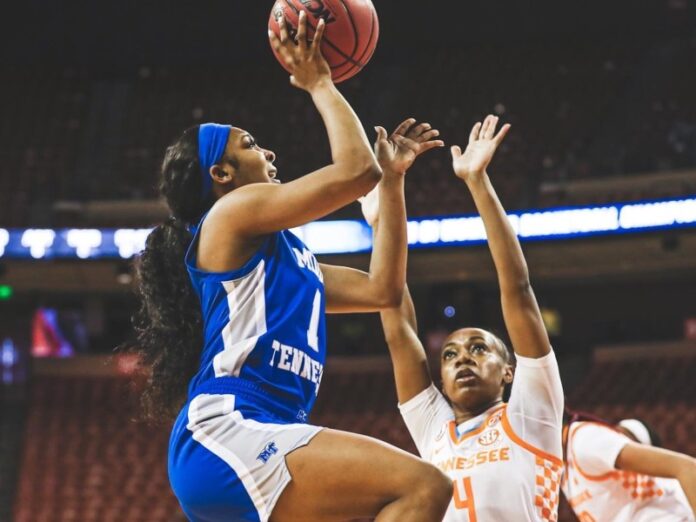
This article is part of our series “COVID-19: 1 Year Later,” exploring the ways COVID-19 has affected and changed daily life over the last year. For two weeks, we surveyed our readers on how COVID-19 has affected them. Read our survey results here.
Watching March Madness playoffs this year, it is obvious that COVID-19 is having a huge impact on college sports, but what the college players are going through mentally is rarely discussed. It can be described as a year of hurry up and wait for them.
Chris Massaro, Director of Athletics at MTSU, recently described why it is so important for college students to play their sports. Sports is not only part of who they are, but they have gone through a year of hell to play. They are being tested for the virus three times a week, and often have not known if they are going to play or not until the very last minute. It plays havoc with them mentally, because there is no consistency due to how the disease affects everyone differently.
The fluctuations are wild.
When a player came down with cold symptoms at one away game, his rapid test came out negative, but they can have false results so the player was isolated because they could not get a PCR test. Instead of flying back with the team, a staff member who had already recovered from COVID-19 drove him back from Florida. When they finally got a PCR test, it was negative. Still, they could not chance having him play.
No player can travel without negative results from a Sunday swab test. When four players’ test results were not back before it was time to get on a plane, they gave them a rapid test that came back negative. But just before take-off, the PCR results came back positive. Everyone had to get off the plane, the athletes had to go into isolation, and the plane had to be deep cleaned.
“Because we often don’t know until the very last minute if we are going to play or not,” said Massaro, “performance is uneven. It’s hard for people to understand until they look behind the scenes.”
MTSU athlete stories are not unique, Massaro explained. All athletes are going through it.
Teams participating in conference play-offs were all kept on-site for the duration and were tested every day. If one team member has a positive test, then the entire team is out. And during the NCAA championships, if anyone violates the COVID-19 protocols, they are out of the tournament.
These protocols are nothing compared to what the players have had to go through during the year to stay healthy. Athletes have had to stay away from other students, sit at assigned tables for meals and on buses based on past exposures.
But it has not just been the athletes who have been affected. So have referees. They have had to go through just as many protocols, as well as take a 10% pay cut due to the economic hardships that athletic programs are facing due to cuts in ticket sales and televised games.
While the CARES Act is mitigating some of the revenue loss, colleges across the country are feeling the strain. Sports budgets will need to be cut, which means young athletes will have fewer opportunities in the near future to play, run, or swim.
“Our biggest key [to getting back to some kind of normal] is immunization,” said Massaro. But student-athletes cannot be forced to be vaccinated. It will have to be an individual choice.
The kids have lots of emotions about the pandemic, but Massaro feels that it is most important, for their mental health, to have the opportunity to play the game they have focused on being the best they can be for most of their lives.
















